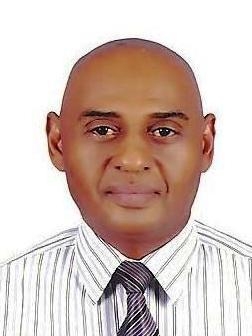"Back home I have tried to apply the standards of care I have seen at the Hammersmith Hospital" (Dr Ahmed Khalid, Sudan)
Preceptorship at the Paul O’Gorman Leukemia Research Centre in Glasgow (Scotland, UK)
Dr Kahlid is a specialist in clinical oncology working at the Radiation and Isotopes Centre in Khartoum, Sudan having treated CML patients for 10 years. He undertook a 4-week clinical preceptorship at the Paul O’Gorman Leukaemia Research Centre in Glasgow, Scotland (UK) under the leadership of Professor Tessa Holyoake in 2013. The program involved training in diagnostic hematology, including PCR for BCR-ABL measurement in patient samples, insights into the area of CML stem cell research, observation of in-patient and out-patient management as well as interaction with the clinical staff and patients who are participating in a wide range of clinical trials.
“When I first heard about the iCMLf Clinical Preceptorship Program during the inaugural Africa Colloquium on CML in Dar-es-Salam back in 2012, I was excited about it from the first moment. To participate in the program seemed the perfect opportunity for me to improve our knowledge and skills in the diagnosis and treatment of CML at my hospital. We see about 200-240 new cases of CML patients each year at the Radiation and Isotopes Centre in Khartoum. The Glivec International Patients Assistant Program (GIPAP) was introduced in Sudan in 2003 and since then I have treated lots of my patients with imatinib. During the preceptorship program I learned how to improve clinical assessment and how to monitor the response of the treatment and potential side effects. The skills I have gained during my stay at the Paul O’Gorman Leukemia Research Centre also helped me to treat difficult CML cases and to update with the CML treatment protocol, especially the use of 2nd generation TKI’s as well as bone marrow transplant. Being involved in diagnostic hematology trainings has raised my awareness on the importance of the implementation of qualitative and quantitative polymerase chain reaction (PCR) analysis in the monitoring of minimal residual disease (MRD). Our institute has now started to equip the laboratory with what is needed to monitor MRD for all our patients with CML. Back home in Sudan I also started to share everything I have learned in Glasgow with colleagues in our hospital during verbal discussions and lectures and by distributing hard copies of CML lectures from my preceptorship.
I am very confident that the benefits from all the contacts I have made will continue well into the future. I have discussed the possibility to conduct further training with Professor Holyoake and we are also planning to arrange a CML workshop in Sudan with her and other CML experts. What we plan to do at our centre in the near future is to further implement minimal residual disease monitoring, to broader use 2nd generation TKIs in patients not responding to imatinib, to start a setting for bone marrow transplant and to conduct further training for CML physicians, nurses and psychologists. Because what has struck me very much during my preceptorship is the importance of multidisciplinary teams in the treatment of CML.
I am very grateful for all what I have learned from Professor Holyoake and other CML experts during my stay at the O’Gorman Leukemia Research center and I do hope that in the future this Preceptorship Program will continue to provide this excellent opportunity for CML physicians from developing countries to improve their skills and knowledge in the management of CML.”











